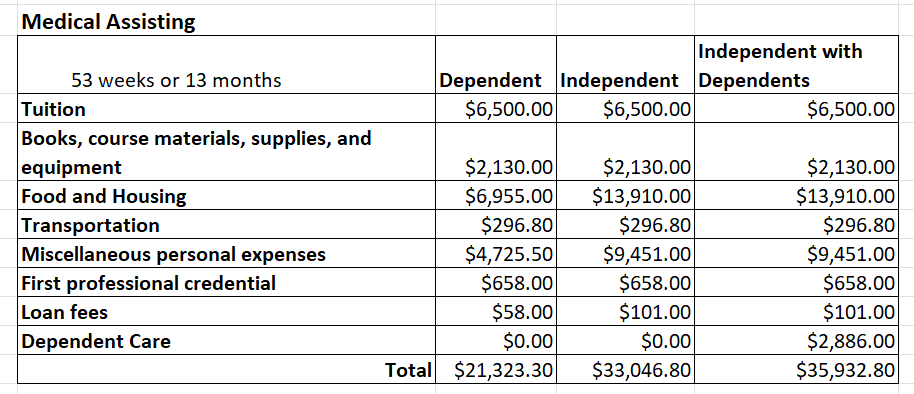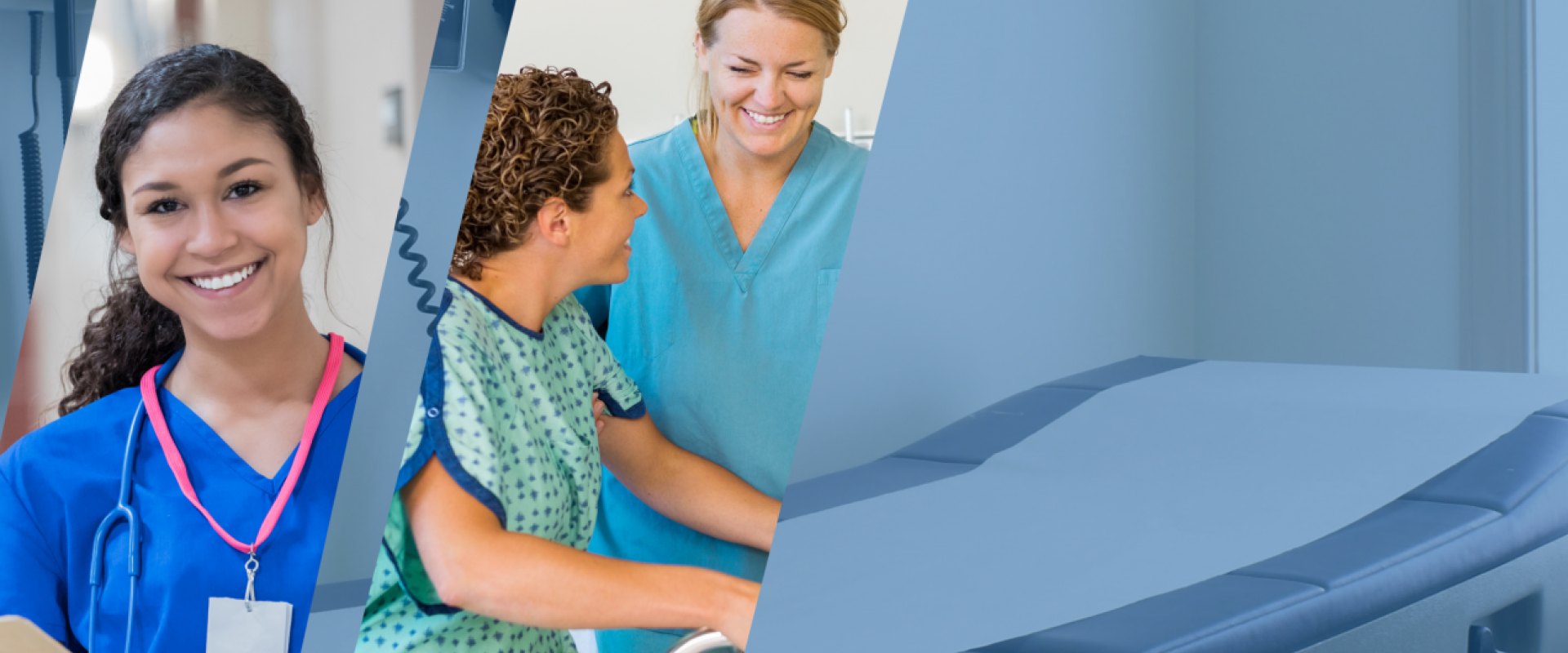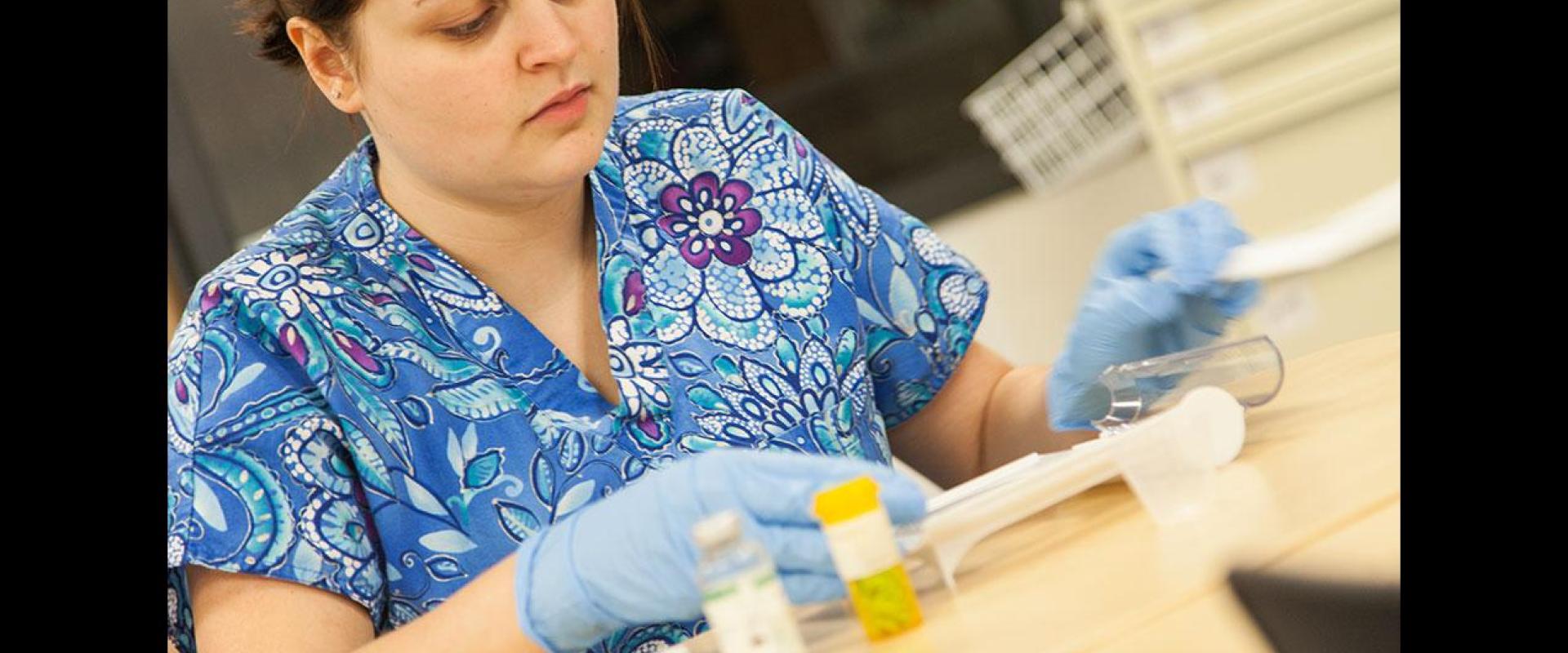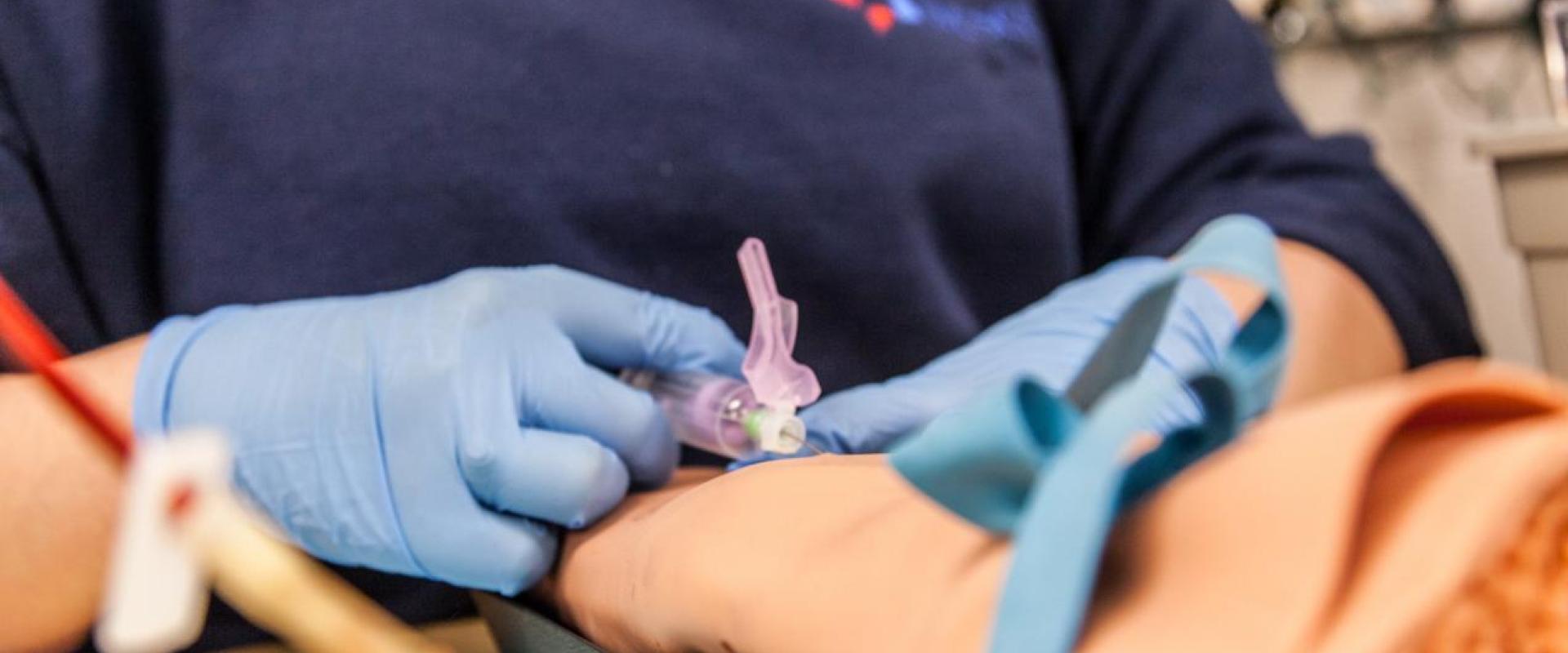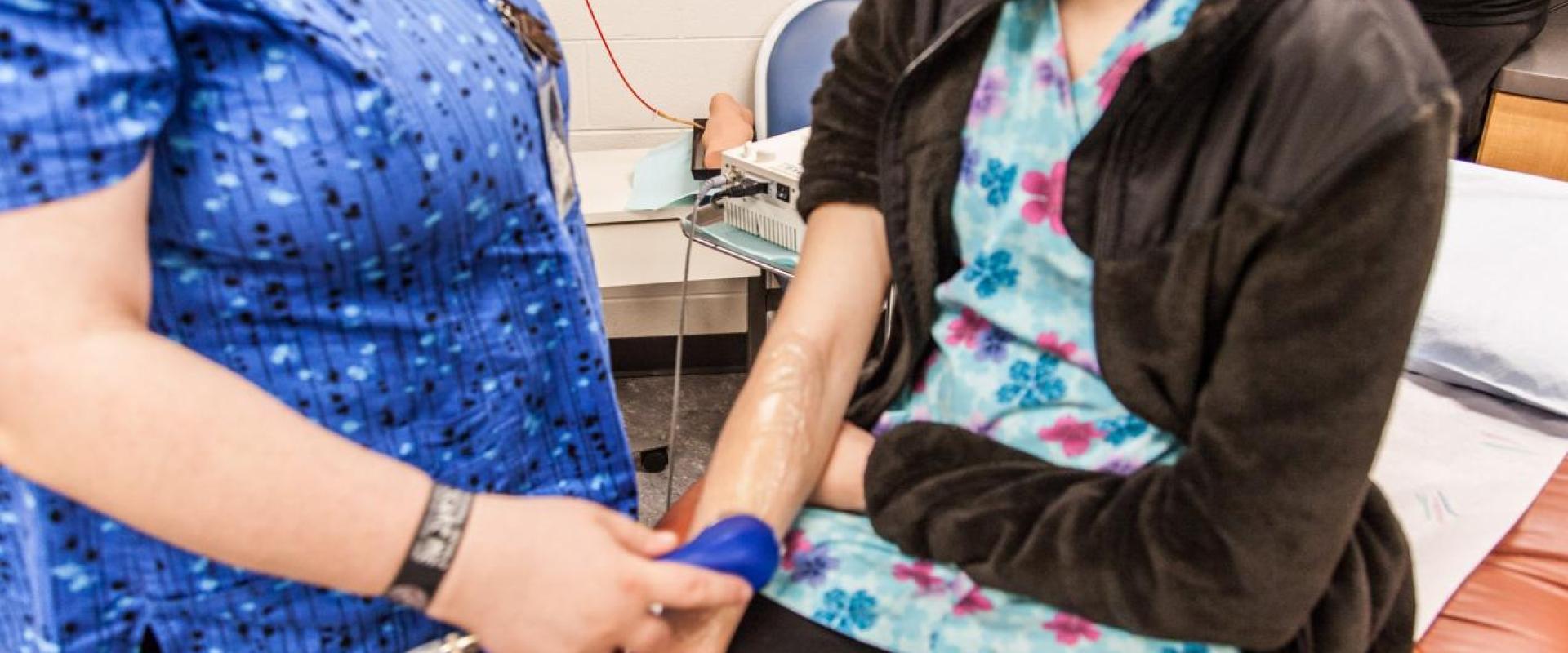The Medical Assisting program is designed to prepare students for a rewarding career in healthcare by providing comprehensive training in clinical and administrative skills. Students will learn essential medical procedures, patient care techniques, medical office management, and clinical procedures. Interactive hands-on learning strengthens students' abilities, connecting classroom knowledge with lab and clinical practice.
Externship - Students in Medical Assisting will participate in 178 hours of hands-on, clinical experiences through an externship with a local health care provider.
Entrance Requirements:
- Passage of the WorkKeys Entrance Exam
- CPR certification
- Hepatitis B vaccinations (series of 3)
- Updated tetanus and diphtheria vaccinations
- Negative TB skin test
- CPR
- Certified Nurse Assistant (CNA)
- Certified Medical Administrative Assistant
- Certified Phlebotomy Technician
- Certified Clinical Medical Assistant (CCMA)
*College Credit - Adult Education partners with other post-secondary education providers to help students reach their goals. College credits may be awarded at Franklin University and/or The University of Akron Wayne College.
Prepared for immediate employment in the medical assisting field including:
- Doctor's Offices
- Hospitals
- Medical facilities
Prepared for advanced certifications or further education
Successful completion of Adult Medical Assisting Program earns 30 credits towards Associate of Technical Studies at The University of Akron.
OCCUPATIONAL RISKS
Medical Assisting is a profession with many rewards, as practitioners can perform both administrative and clinical services, filling several roles in a variety of healthcare environments. The Bureau of Labor Statistics clearly outlines that it is a growth field, with an anticipated 12% growth from 2024-20234.
Medical Assistants work directly with providers and patients, with the goal of providing healthcare and ensuring patient safety. It is a position with a great deal of responsibility.
As with any healthcare position, there are certain occupational risks that come into play with being a medical assistant, and those hazards include the following:
- Exposure to infectious diseases
- Sharps injuries
- Bloodborne pathogens and biological hazards
- Chemical and drug exposure
- Ergonomic hazards from lifting, sitting, and repetitive tasks
- Latex allergies
- Stress
At the same time, there are protections set up with the Occupational Safety and Health Act (OSHA), and those protections are particularly important within a healthcare environment. OSHA has a series of standards that protect the safety of healthcare workers and patients.
Accredited medical assisting programs are required to teach students about the hazards that they face on the job and the protocols that can be put into place to ensure a workplace culture that prioritizes safety.
Next start date: Sept. 21, 2026
- This 850-hour program is about 12 months long and meets Monday - Thursday 5 - 9 pm
- Please note that the Nurse Aide Module from 3:30 - 9 pm
- Program cost: $9,670 (Program costs is inclusive of all tuition, books, materials, and testing fees. All costs subject to change.)
- Financial Aid available for those who qualify. Visit our Financial Aid page for more information.
- Student Handbook
How to enroll in the Medical Assisting program: Register for an info session where you'll receive your application, financial aid information, course schedule, and more. Reserve your spot by calling 330-669-7070 or online here.
Cost of attendance
Federal regulations require schools to make Cost of Attendance information publicly available on their website. All categories listed excluding tuition and books, are an estimate only and not the actual charge for the program of study.
